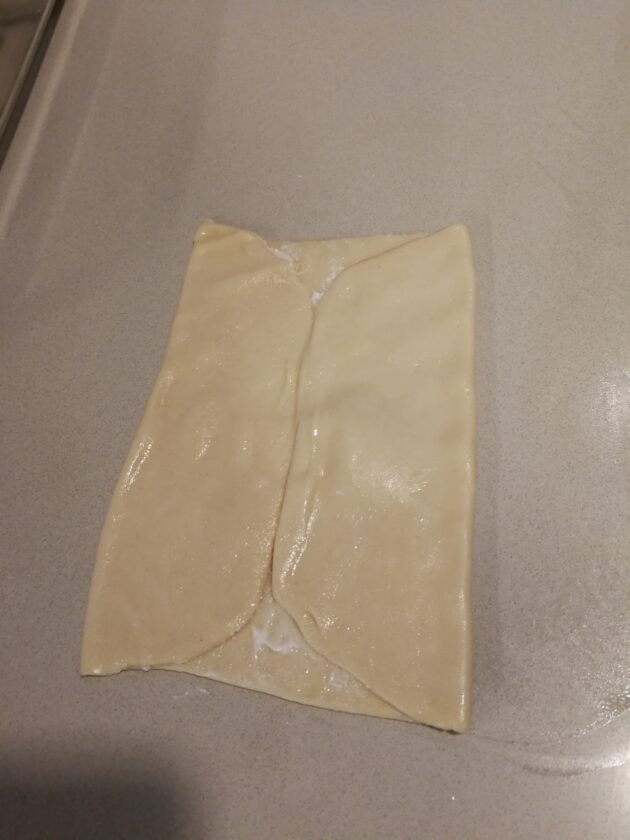Daniel Goldwater
Chef CMRJ
Jerusalem
Israel
Jachnun Bread with Hilba
Jachnun is a long baking bread, traditionally baked for the Sabbath and religious holidays as cooking is forbidden on the Sabbath due to religious observance. Jachnun is very much a unique traditional food brought by the Jews of Yemen to Israel.
The Jews had a long history in Yemen and the Arabian Peninsula, going back to the times of King Solomon, so it is told. The Himyarite Kingdom which was located geographically in what is modern-day Yemen was a Jewish kingdom eventually vanquished by a combined Christian army of Ethiopians and Byzantines in the 6th Century CE just before Islam burst out of the Arabian Peninsula and surprised the world, and a nasty surprise it was for most. A stoic Jewish community managed to survive relentless persecution by Yemen’s Muslim rulers for the next 1400 years, the remnants being airlifted en mass by Israel using the heroic services of Alaska Airlines and their aircrews in the unique operation ‘On Wings of Eagles’ between 1948 and 1950. Today there are approximately 500,000 Jews of Yemenite descent around the world, most of them living in Israel.
Hilba is a condiment eaten with most traditional Yeminite meals, a gooey greenish dip made from ground fenugreek seeds mixed with grated tomato, lemon juice, water and zchug. While visually not attractive and with a texture something akin to camel spit, hilba does have a unique flavour and is a must if you are eating Jewish Yemenite cuisine. Further, the medicinal and health benefits of eating hilba have been praised and well documented.

Jachnun Ingredients: (amount for extended family)
- All-purpose white flour sifted x 1 kg
- Baking powder x 5 gram
- Brown sugar x 1/3 cup
- Salt x 5 gram
- White vinegar x 4 tablespoons
- Canola oil x 4 tablespoons
- Softened butter x 200 gram
- Pita bread x 2 whole pieces
- Boiling water x 2 cups + 2 tablespoons
- Additional for the process: baking paper and alloy foil.
Method:
All ingredients except the butter into a mixer with paddle attachment and mix for at least 7 minutes; if doing by hand mix for 15 minutes (if you are mad enough).
Brush the top of the dough with oil and leave to rest for 30 minutes.
Preparing the baking pot:
Line bottom of pot with baking paper, cut pita into two circles and place on bottom of pot on the baking paper. This is to absorb excess oil and fat from the baking process. After the bottom is sealed, the sides also have to be lined with baking paper and pita.
Divide the dough into 20 equal balls, place the balls on a tray for one hour, brushing all the balls with oil.
Using a rolling pin take the first ball, open up to a rectangular shape a few millimetres thick and using a spatula spread evenly the softened butter over the entire surface, then fold the two sides in to the middle of the sheet and then spread another layer of butter onto the folded in sides, then fold in the ends so all the butter is captured within the dough. Then stretch and roll up tightly ensuring the dough remains thin throughout the process. Roll each piece in the oil of the tray before placing in pot. Repeat this with remaining nineteen balls filling up the pot layer by layer. Making sure to place a circle of baking paper between each layer so they don’t stick together.
Place baking paper onto final layer of Jachnun, cover with aluminium foil and fix lid tightly.
Place in preheated oven at 180 Celsius for one and a half hours, then reduce to 100 Celsius and leave to bake overnight.
Hilba (makes a good jar’s worth)
- Ground fenugreek seeds x Two tablespoons
- Salt ½ teaspoon
- Large tomatoes x 2, peeled and grated
- Water x 1/3 cup
- Juice of one large lemon
- Zchug x 2 teaspoon (recipe in my post # 2 )
Method:
Place ground fenugreek in a bowl and pour in cold water while mixing, ensure the water covers the mass by at least an inch. Cover and leave overnight in fridge.
Remove from fridge the next morning, tip out excess water and using a metal spatula skim off the top gooey layer gently; this is important as it removes the bitterness from the mixture.
Add all of remaining ingredients and mix well. Ready to eat.
A breakfast or brunch with jachnun and helba is usually accompanied by hard boiled eggs and is good for a real fress (Yiddish for gluttony).
Next week back to please Zorba the Greek with a super tasty serving of traditional greek moussaka and rice.
Yassas (Greek expression of welcome or bye)
If you enjoyed this recipe why not share it with your friends via social media or e-mail? If you want a copy of your own select the print option at the top of the page.











